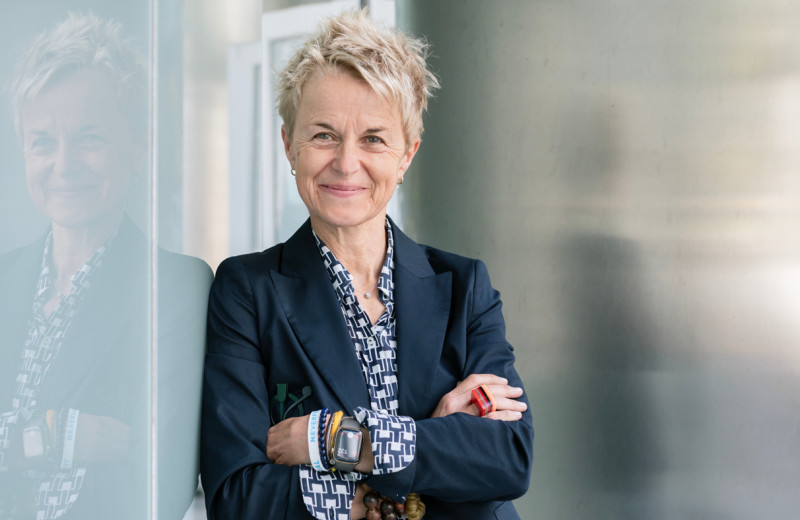Gladstone NOW: The Campaign Join Us on the Journey✕

Olivia Sims will soon complete her postdoctoral fellowship in the laboratory of Melanie Ott, MD, PhD. She joined Gladstone after earning her BS in biology from Syracuse University and PhD in immunology from the Mayo Clinic.
What brought you to Gladstone?
The world-class research, state-of-the-art technology, and international reputation of creating innovative solutions to global health problems. When I interviewed in Melanie Ott’s laboratory, her passion and excitement were palpable and infectious. I was inspired by her passion to help others by taking basic science from the bench to the bedside and by understanding the cellular and molecular mechanisms of disease.
What do you like about Gladstone?
Gladstone provides a friendly, supportive, and dynamic atmosphere. Further, the spirit of collaboration fosters a national and global presence in basic science that enables science to move forward at lightning speed.
What will you do once you complete your postdoctoral fellowship at Gladstone?
I’ve been offered a scientific advisor position at a Seattle law firm within the intellectual property innovation group. I’m looking forward to marrying science and law together to tackle unmet global health needs. I will utilize my diverse scientific and technical expertise alongside my desire to improve human health using biotechnology in the life sciences.
Were you interested in science as a child?
From an early age, I was always very curious. Reading is one of my favorite pastimes. As a child, I would spend hours in the library, and I knew at a very young age that I wanted to help others. Originally, I wanted to become a physician. Yet, learning about cell and molecular biology opened my eyes to biomedical research as an avenue to discover the mechanisms of disease. I pursued a biophysics research internship during my junior year after taking a cell biology course, and I was absolutely fascinated with the experience. There was no turning back—I caught the “research bug.”
Why did you decide to go to graduate school?
My heart is in Africa; the long-term consequences of the HIV epidemic and the devastation of AIDS inspired me to fuse immunology and virology toward understanding the biology of the virus. As an African American female scientist, I felt inspired and compelled to pursue HIV research.
What do you do when you are not working in the lab?
I love spending time with family and friends, and volunteering my time in the Bay Area. I love the outdoors: running, hiking, and going to the beach.
If you could learn to do anything, what would it be?
To become sustainably fluent in multiple languages so I can interact and connect with more people.
What is your hidden/unique talent?
I love to sing. It is rare when I am not listening to music in my spare time. I would love to sing back-up for a band.
Name one thing that not many people know about you.
My family is huge. I have nine aunts and uncles, and I’m a great-auntie.
If you could meet any scientist from any point in time, who would it be and why?
Blaise Pascal. He was a mathematical innovator who lived an interesting and notable life. Conceptually, he was far ahead of his time.
What is your favorite quote?
“What you do speaks so loudly, I cannot hear what you say” —Ralph Waldo Emerson
Virologist Viewpoints: For HIV, ‘Manageable’ Is No Longer Good Enough
Virologist Viewpoints: For HIV, ‘Manageable’ Is No Longer Good Enough
Once a godsend, antiretroviral therapy is not what we should settle on. The time has come to finally cure HIV/AIDS.
HIV/AIDS Ott LabCould This Molecule Be ‘Checkmate’ for Coronaviruses?
Could This Molecule Be ‘Checkmate’ for Coronaviruses?
Scientists develop powerful drug candidates that could head off future coronavirus pandemics.
News Release Research (Publication) COVID-19 Infectious Disease Krogan Lab Ott LabSizing Up the Risk of Bird Flu: Q&A With Gladstone Virologist Melanie Ott
Sizing Up the Risk of Bird Flu: Q&A With Gladstone Virologist Melanie Ott
Avian influenza isn’t going away any time soon. But how serious is its threat to humans and what precautions are necessary?
News Release Infectious Disease Ott Lab



